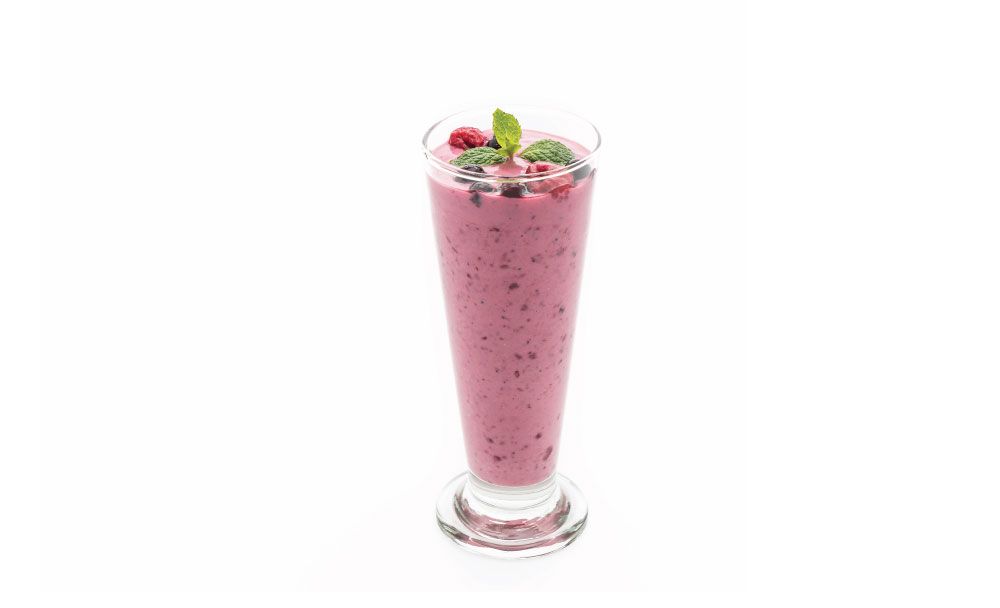This article is reviewed by an expert

Yogurt is a nutritious food that has been consumed for centuries, and for a good reason. It contains everything from protein, calcium, and vitamins to minerals. Together, they offer various health benefits, from boosting your immune system to promoting digestive health.
This article explores 10 such health benefits of eating yogurt daily. So, let’s discover why this creamy treat should be a regular part of your diet.
Nutritional value of yogurt
One cup (8 fl oz) of plain and low-fat yogurt offers the following nutrition: [1]
| Name | Amount |
|---|---|
| Protein | 12.86 g |
| Total lipid (fat) | 3.8 g |
| Carbohydrates, by difference | 17.25 g |
| Energy | 154.35 kcal |
| Calcium | 448.35 mg |
15 benefits of consuming yogurt
Here are 15 health benefits you can enjoy by consuming yogurt:
1. Provides probiotics
Yogurt is an excellent source of probiotics that help improve gut health by balancing the microbiome. [2]
2. Boosts immune system
The probiotics in yogurt can help boost the immune system and reduce the risk of illnesses. [3]
3. Helps with digestion
Yogurt aids digestion by promoting healthy gut bacteria growth and reducing symptoms of digestive disorders like constipation and bloating. [4]
4. Contains protein
As a great source of protein, Yogurt helps build and repair tissues. Furthermore, it helps maintain muscle mass. [4]
5. Contains important vitamins and minerals
Yogurt is a good source of vitamins B12 and B2 and calcium, which are essential for bone health and energy metabolism. [5]
6. Helps with weight management
The protein and probiotics in yogurt can help promote feelings of fullness and aid in weight loss. [2]

7. Reduces inflammation
The probiotics and nutrients in yogurt help reduce inflammation, which is a contributing factor to many chronic diseases. [3]
8. Improves heart health
Consuming yogurt may help lower blood pressure and cholesterol levels. It can have a direct impact on reducing the risk of heart disease. [6]
9. Reduces the risk of type 2 diabetes
Yogurt helps improve insulin resistance and reduce the risk of developing type 2 diabetes. [7]
10. Lowers the risk of cancer
The probiotics and nutrients in yogurt have anti-cancer properties and may help reduce the risk of certain types of cancer. [2]
11. Improves brain function
Consuming yogurt helps improve cognitive function and memory. [8]
12. Improves bone health
The calcium content in yogurt helps improve bone density and reduce the risk of osteoporosis. [1]
13. Improves skin health
The probiotics in yogurt help improve skin health by reducing inflammation. [2]
14. Helps regulate bowel movements
The probiotics and fiber in yogurt help regulate bowel movements and improve digestive health. [2]
15. Prevents vaginal infections
Women who consume yogurt experience lesser chances of vulvovaginal candidal infections. [9]
How to consume yogurt
Here are some tips for incorporating yogurt into your diet:
- As a snack
Yogurt makes a great snack on its own or when mixed with fruits and nuts.
- As a breakfast option
Yogurt can be a healthy breakfast option if you add fruits and whole-grain cereals.
- As a smoothie base

Yogurt is a popular smoothie base; you can blend it with fruit and ice.
- As a salad dressing
Yogurt can be a healthier alternative to mayonnaise or other salad dressings.
- As a marinade
Yogurt is an excellent vegetable marinade to add flavor and tenderize the food.
- As a substitute for sour cream
Yogurt is a healthier substitute for sour cream in recipes like dips and sauces.
- As a frozen treat
Yogurt can be frozen and eaten as a healthy dessert option.
FAQs About Yogurt
1. Yogurt calories per 100 gm
The calories in 100 gm yogurt can vary depending on the type of yogurt and its ingredients. On average, plain whole milk yogurt contains around 61 calories per 100 gm.
2. Yogurt protein per 100 gm
The protein content in 100 gm yogurt differs depending on the type of yogurt. A plain whole milk yogurt contains around 3.47 gm of protein per 100 gm.
3. What is the curd-yogurt difference?
Curd and yogurt are both made by fermenting milk with lactic acid bacteria, but they are made using different methods and can have different textures and tastes.
4. What are yogurt’s benefits for the skin?
Yogurt can have several benefits for the skin, including reducing inflammation, moisturizing, and exfoliating. The probiotics in yogurt can also help balance the skin’s microbiome, improving overall skin health.
5. What are the benefits of eating yogurt?
Eating yogurt can have several benefits, including improving gut health, boosting the immune system, and aiding digestion.
Conclusion
Yogurt is a delicious and nutritious food with numerous health benefits when consumed daily. From improving gut health and boosting the immune system to aiding in digestion and providing a good source of protein, yogurt is a versatile food you can enjoy in many ways.
With so many benefits, it’s no surprise that yogurt is a popular food worldwide. So add yogurt to your diet and see the difference in your overall health and well-being.
Disclaimer :
The information provided here has no relevance to Ayurveda and is more from a healthy lifestyle perspective. It is not intended to replace professional medical advice or treatment.
References:
- Nutrition Facts.
- History of yogurt and current patterns of consumption. August 2015
- Probiotic yogurt offers higher immune-protection than probiotic whey beverage.
- The evolution, processing, varieties and health benefits of yogurt. 4 April 2014
- The contribution of yogurt to nutrient intakes across the life course. 12 February 2015
- Effect of Cucurbita ficifolia and Probiotic Yogurt Consumption on Blood Glucose, Lipid Profile, and Inflammatory Marker in Type 2 Diabetes. 2 February 2016
- Yogurt improves insulin resistance and liver fat in obese women with nonalcoholic fatty liver disease and metabolic syndrome: a randomized controlled trial. 28 May 2019
- Yogurt: role in healthy and active aging. May 2014
- Ingestion of Yogurt Containing Lactobacillus acidophilus as Prophylaxis for Candidal Vaginitis. 1 March 1992
- Yogurt, plain, whole milk. 4 January 2019



















